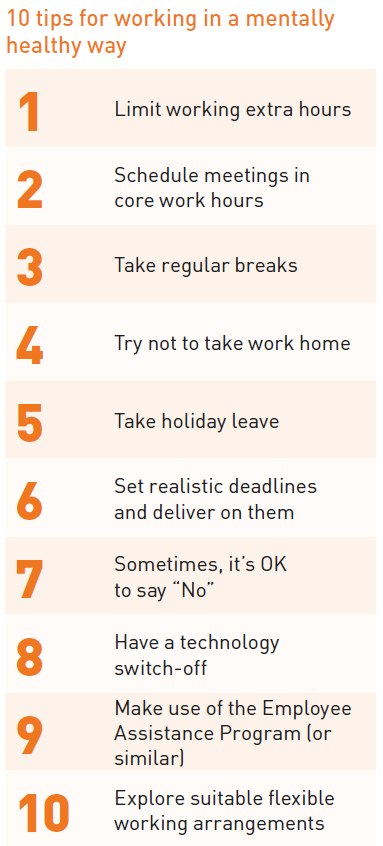Feeling stressed or burnt out? It’s not surprising when we consider the ongoing global pandemic, continued skills shortages across many industries, rising costs of living, and looming prospect of a recession. It’s like a pressure cooker, and the strain spills into workplaces. A global workplace report shows employee wellbeing has stalled since COVID-19 began, and workplace stress is rising.
There are a lot of campaigns focused on raising awareness about mental health. However, the reality is the stigma surrounding mental health is still prevalent. If you are contemplating taking a mental health day off work, it’s normal to feel uncertain about how you may be perceived or the impact to your career. You might even decide it’s not worth the trouble – which could more damaging to your mental health in the longer term.
Understand your leave entitlements
The first step to requesting leave is to understand what your entitlements are. In line with the National Employment Standards (NES), you have ten paid sick leave days as a full-time permanent employee (and pro-rata for part-time employees). However, some employers offer more sick leave than the standard requirement, so do check your contract. According to the NES, you can take sick leave for stress-related illnesses.
For contract workers who don’t have access to paid leave entitlements, taking some time off is still important. It’s unhealthy to work non-stop all year – it can hurt your performance at work and your physical health. Even though you don’t get paid on the days you take off, contract pay rates include leave loading and are typically higher than permanent employees for this reason. As a contractor, it makes sense to factor in unpaid vacation leave as part of your financial planning. But don’t forget about the possibilities of needing unplanned leave. If you take this into account as well, you’ll be able to afford to take mental health breaks when needed.
Be as discreet or as open as you want to
If you are hesitant about requesting mental health leave, the good news is you don’t have to tell your boss if you don’t want to. You have the right to privacy and are not legally required to inform your employer unless your condition could endanger yourself or your colleagues. Simply inform your manager that you are unwell and need to take time off. Check if you need a medical certificate for any leave you take. Although, if you decide to speak out, it may help reduce the stigma around mental illness.
Heads Up – an organisation promoting better mental health in workplaces – advises that there is no right or wrong answer when sharing your mental health condition at work. Instead, your decision depends on many factors: your relationship with the people you work with, your support networks, and how much your condition impacts your job. To figure out if sharing or not sharing is best for you, you can use the Heads Up interactive tool.
If you do decide to share, review the helpful advice on how to tell others at work. It is important to note that your employer must legally maintain your privacy if you do not wish others to know. They must also ensure you are not discriminated against at work and make relevant changes to appropriately support you.
Take care of your mental health
It’s important to know mental health exists on a continuum. You can be positive and functioning well in one moment but then struggle to cope in another. It’s important to recognise signs of mental health issues and to take a break.
If you are thinking about taking a mental health day, chances are you need it and will feel better afterwards. It will be better for you and your team if you take it. Make sure you switch off from work and spend the day doing something that you enjoy.










